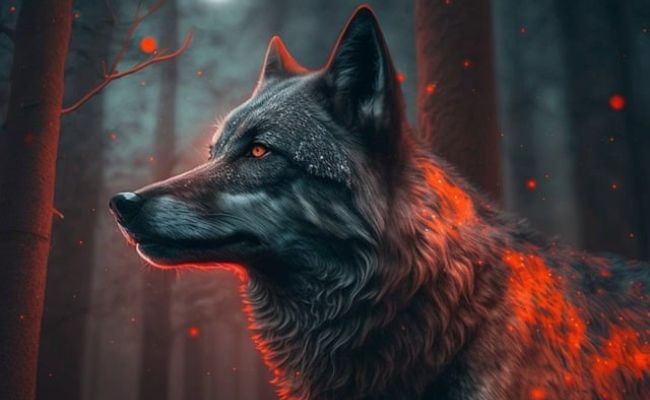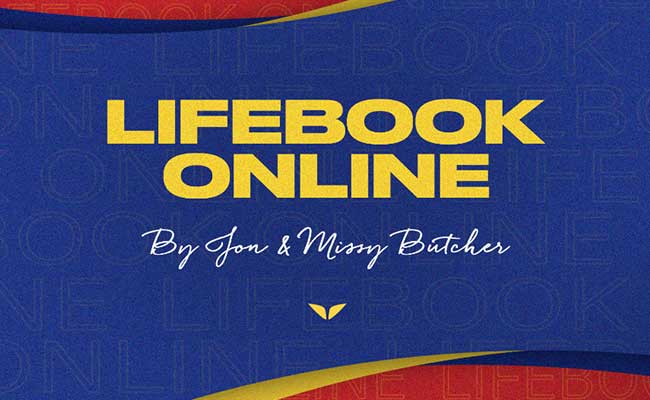Empaths are individuals with a unique ability to understand and share the feelings of others. However, within the realm of empaths, there exists a subgroup known as “Lone Wolf Empaths” — those who combine the sensitivity of an empath with an inclination toward solitude.
In this article, we will delve into the distinctive traits of a lone wolf empath, exploring both the upsides and downsides of each characteristic.

However, before we do that, let's define exactly wha an empath is.
What Is an Empath?
An empath is an individual who possesses a heightened ability to understand and share the emotions and experiences of others.
Empathy goes beyond simple sympathy, as empaths can actually feel the emotions of others as if they were their own. This heightened sensitivity allows empaths to connect deeply with people, often making them excellent listeners, counselors, or friends.
Key characteristics of empaths include, though are not limited to the following:
- Empathetic Sensitivity: Empaths are acutely attuned to the emotions of those around them. They can pick up on subtle cues, non-verbal expressions, and the overall energy of a space.
- Intuitive Understanding: Empaths often have a strong intuitive sense, allowing them to grasp the emotional states of others without explicit communication. They can sense underlying feelings and unspoken emotions.
- Absorption of Emotions: Empaths may absorb the emotions of others, experiencing them as if they were their own. This can be both a strength and a challenge, as it enables deep connection but may also lead to emotional exhaustion.
- Sensitivity to Environments: Empaths are often sensitive to their surroundings. They may be affected by the energy of crowds, places, or even nature, experiencing emotional shifts based on the environment they find themselves in.
- Empathetic Healing: Many empaths are drawn to helping professions where they can use their natural empathy to support and heal others emotionally. They may excel in roles such as counseling, psychology, nursing, or social work.
It's important to note that being an empath is not a strictly defined trait, and individuals may experience and express empathy in different ways. While some people naturally exhibit empathetic qualities, others may develop or enhance their empathetic abilities over time through personal experiences, self-reflection, and a conscious effort to connect with others on a deeper emotional level.
The Lone Wolf Empath
Unlike traditional empaths who may thrive on frequent social interactions, the Lone Wolf Empath finds solace and strength in solitude. This unique persona combines the deep emotional sensitivity typical of empaths with a strong inclination toward independence and self-reliance.
Lone Wolf Empaths possess an innate ability to connect with others on a profound level, yet they navigate the complexities of their emotions in isolation.
Their preference for solitude doesn't diminish their empathy but rather shapes a character marked by resilience, self-reflection, and a capacity for profound emotional understanding. Striking a delicate balance between the benefits of independence and the need for meaningful connections, the Lone Wolf Empath charts a distinctive course within the intricate landscape of empathetic experiences.
Let's explore the traits of a Lone Wolf Empath and the upsides and downsides of these traits:
Trait 1: Intense Empathetic Sensitivity
Upside: Unparalleled Emotional Connection
The Lone Wolf Empath is gifted with a remarkable ability to forge connections that transcend the superficial. Their heightened sensitivity acts as a finely tuned instrument, enabling them to delve into the depths of others' emotions.
Unlike surface-level interactions, the Lone Wolf Empath engages in conversations that resonate on a profound and meaningful level. Their intuitive understanding allows for a unique form of empathy that goes beyond words, creating bonds that are rich in emotional resonance.
Downside: The Weight of Emotional Exhaustion
However, this extraordinary sensitivity, while a strength, can also be a double-edged sword. The Lone Wolf Empath, in their pursuit of deep connections, risks experiencing emotional exhaustion.
The constant absorption of others' emotions, especially in intense or challenging situations, can take a toll on their mental and emotional well-being. Struggling to establish firm boundaries, they may find themselves overwhelmed by the emotional currents around them, even to the detriment of their own stability.
The challenge lies in navigating a delicate balance—maintaining the ability to connect deeply while also safeguarding their emotional energy. Without the proper self-care and boundary-setting, the Lone Wolf Empath may find themselves at risk of burnout, emphasizing the need for mindful reflection and strategies to preserve their well-being in the midst of their empathetic journey.
Trait 2: Independence and Solitude
Upside: Cherished Independence and Self-Reflection
The Lone Wolf Empath holds a profound appreciation for independence, finding solace in the embrace of solitude. This trait serves as a sanctuary where they can recharge their emotional batteries, fostering an internal retreat that allows for introspection and self-discovery.
Embracing moments of aloneness, the Lone Wolf Empath not only nurtures a strong sense of self but also engages in profound self-reflection, cultivating a deeper understanding of their own emotions and motivations.
Downside: The Perils of Excessive Solitude
However, this commitment to independence, when taken to the extreme, poses challenges. Excessive solitude can inadvertently lead to isolation, hindering the Lone Wolf Empath's capacity to form and maintain meaningful connections with others. Striking a delicate balance between the sanctuary of solitude and the richness of social interaction becomes imperative for their emotional well-being.
Without this equilibrium, the Lone Wolf Empath risks losing the valuable interpersonal connections that contribute to their emotional resilience and growth. Thus, understanding the delicate dance between independence and social engagement is crucial for the Lone Wolf Empath to not only thrive in their solitude but also to forge and sustain the connections that add depth and meaning to their empathetic journey.
Trait 3: Innate Intuition
Upside: Intuitive Mastery in Social Dynamics
The Lone Wolf Empath boasts a formidable gift of intuition, a powerful compass that skillfully guides them through intricate social dynamics. This heightened intuitive sense serves as a beacon, allowing them to decipher unspoken emotions and subtle nuances in human interactions.
Armed with this profound insight, the Lone Wolf Empath becomes a beacon of understanding, offering valuable insights and guidance to those around them. Their intuition acts as a compass, steering them toward deeper connections and fostering a heightened awareness of the emotional undercurrents in their social sphere.
Downside: The Struggle of an Overactive Intuition
Yet, this incredible gift comes with its own set of challenges. An overactive intuition, while a source of guidance, can lead to moments of anxiety and excessive worry. The Lone Wolf Empath, sensing the unspoken emotions and potential pitfalls, may find it challenging to fully trust others.
The fear of emotional overwhelm or manipulation becomes a lingering concern, creating a delicate balance between their intuitive insights and the need for genuine trust in their relationships. Managing this tension is crucial for the Lone Wolf Empath to harness the positive aspects of their intuition while maintaining healthy and trusting connections with those around them.
Trait 4: Emotional Resilience
Upside: Forged in Resilience
Lone Wolf Empaths emerge from life's crucible with a remarkable gift—a robust emotional resilience cultivated through their unique experiences. Life's challenges become a forge for their emotional strength, teaching them to process emotions independently and emerge from adversity with newfound strength.
Their ability to confront and overcome difficulties serves as a testament to the Lone Wolf Empath's tenacity, and they often become beacons of inspiration for others navigating their own emotional landscapes.
Downside: The Burden of Independence
Yet, the pursuit of emotional resilience, when taken to its extreme, can cast a shadow. The Lone Wolf Empath, in their quest for self-sufficiency, may internalize emotions to an extent that seeking external support becomes a formidable challenge. This self-imposed solitude can hinder their ability to share emotional burdens, potentially jeopardizing their mental well-being.
Recognizing the importance of reaching out and sharing the weight of their emotions with trusted allies becomes not only a challenge but a crucial aspect of maintaining a balanced and healthy emotional state.
The Lone Wolf Empath's journey, while marked by resilience, underscores the necessity of finding equilibrium—knowing when to stand strong independently and when to lean on the supportive network around them.
Trait 5: Creative Expression
Upside: Creative Alchemy of Emotions
Many Lone Wolf Empaths discover a unique gift within their emotional depth—an ability to channel profound feelings into creative endeavors.
Whether through writing, art, music, or other forms of expression, their creativity becomes a powerful outlet for communication and emotional processing. This artistic alchemy transforms intense emotions into captivating works that resonate with others, providing a therapeutic and enriching experience for both the creator and the audience.
Downside: The Ebb and Flow of Expression
Yet, the intensity of emotions that fuels their creativity can also present challenges. There are moments when the torrent of feelings may lead to creative blocks or periods of emotional withdrawal. The Lone Wolf Empath, grappling with the depth of their emotions, may find it temporarily challenging to translate those feelings into their chosen artistic mediums.
These ebbs in expression can hinder their ability to convey their inner world, creating a struggle to bridge the gap between intense emotions and their creative outlets. Recognizing and navigating these ebbs and flows becomes an essential part of the Lone Wolf Empath's creative journey, fostering resilience and adaptability in the face of the dynamic interplay between emotion and artistic expression.
In Summary
The traits of a lone wolf empath form a unique and intricate tapestry, combining deep empathy with a preference for solitude.
While each trait presents both advantages and challenges, understanding and embracing these characteristics can empower lone wolf empaths to navigate the complex landscape of their emotions, fostering personal growth and connection.
Balancing solitude with social interaction, setting healthy boundaries, and seeking support when needed are crucial steps for a lone wolf empath to lead a fulfilling and emotionally rich life.
——
If you resonate with the traits of a lone wolf empath and find yourself navigating the intricate interplay of deep empathy and a penchant for solitude, know that you are not alone. Your unique experiences can offer valuable insights and support to others who may be on a similar journey.
Embracing and sharing your story can contribute to a collective understanding of the experience. So, don't hesitate to share your experiences below in the comments section, as your voice has the power to inspire, comfort and guide, making a positive impact on those who may be seeking understanding and companionship.





Michael says
As a fellow lone wolf empath I want to tell you that you are not alone you are not crazy Keep moving forward and keep in mind. That the past is gone the future is uncertain and that only in the present can we discover the miracle of life.
Alfred James says
Absolutely Michael. Well said!
Chodpa says
This is 100% my wife!
Your article was so illuminating, and is really helpful for giving me insight into her makeup. I’d always found these two seemingly contrary aspects fascinating. Thanks so much.
Alfred James says
So glad you found it insightful!
Chodpa says
I thought I’d share that she had a wry smile on her face after she read the piece. I think that was recognition 😉
Edwina says
As a child I wondered what was wrong with me! I told no one that when I seen or heard kids bullying in school, I could “feel” the hurt and humiliation of the victim. It made me sick inside. I carried (maybe still carry) those feelings like they were my own. I couldn’t understand how people could be mean! Didn’t it hurt them too?
In 2017, I shook the hand of a woman selling crystals and jewelry, and as she held my hand, she looked me in the eyes and said, “oh! A fellow empath”! I asked her if that was good or bad! I went home, did some research, and found out that “THIS” Sigma empath…is who I am and there is nothing “wrong” with me!!! lol
Alfred James says
Hi Edwina,
Thank you for sharing your experience; it really resonates with me. I completely understand that feeling of wondering if something was “wrong” when you feel so deeply connected to others’ emotions. Like you, I also take on others’ pain, especially in situations where I saw someone being mistreated. It can be overwhelming, and I’ve often struggled with the same questions like how could others not feel that pain too?
It wasn’t until later in life that I also discovered that being an empath wasn’t a flaw, but rather a part of who I am. It’s such a powerful realization when you understand that there’s nothing “wrong” with you—it’s simply that you’re more in tune with the emotions and energies around you.
It’s amazing how a simple moment, like a handshake with that woman, can open up a whole new understanding of yourself. It sounds like you had a similar journey to self-awareness, and I completely relate to that feeling of relief and empowerment when you finally understand that being an empath is both a gift and a challenge.
Wishing you continued growth and peace on this journey!
Jose says
Hello,
A couple of days ago, I came across someone on social media that briefly described the characteristics of a Lone Wolf Empath. I had never in my life heard of that and it caught my attention enough to do a search online about it. And here we go, I found this article that fully describes my personality. What I appreciated the most was to become aware of the downsides and the need to find a balance. Otherwise, I was almost ready to by a small piece of land in the middle of nowhere, get some animals and “happily” spend the rest of my life there.
Thank you for this article!
Alfred James says
Thank you for reaching out! I’m really glad you found the article and that it resonated so deeply with you. It’s always eye-opening when we come across something that so accurately reflects who we are—it helps bring clarity and a sense of validation.
And yes, while the idea of complete solitude can be tempting (a quiet piece of land with animals does sound peaceful!), finding balance is key. The world needs lone wolf empaths just as much as we need our own space to recharge.
Wishing you the best on your journey, and if you ever have any insights or thoughts to share, I’d love to hear them!
Genevieve says
Honestly, this was really helpful and opened my eyes to learning more about myself.